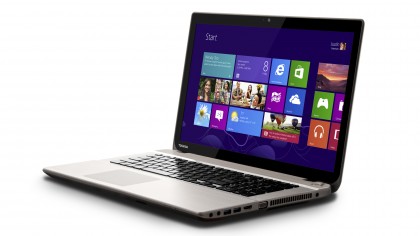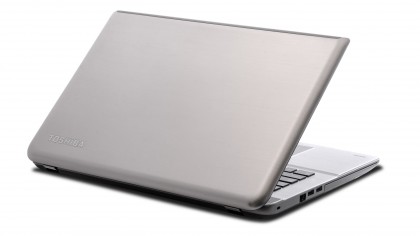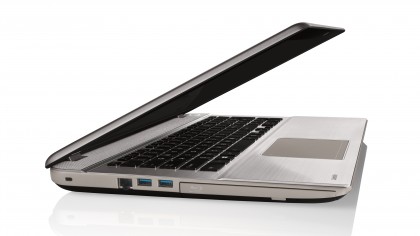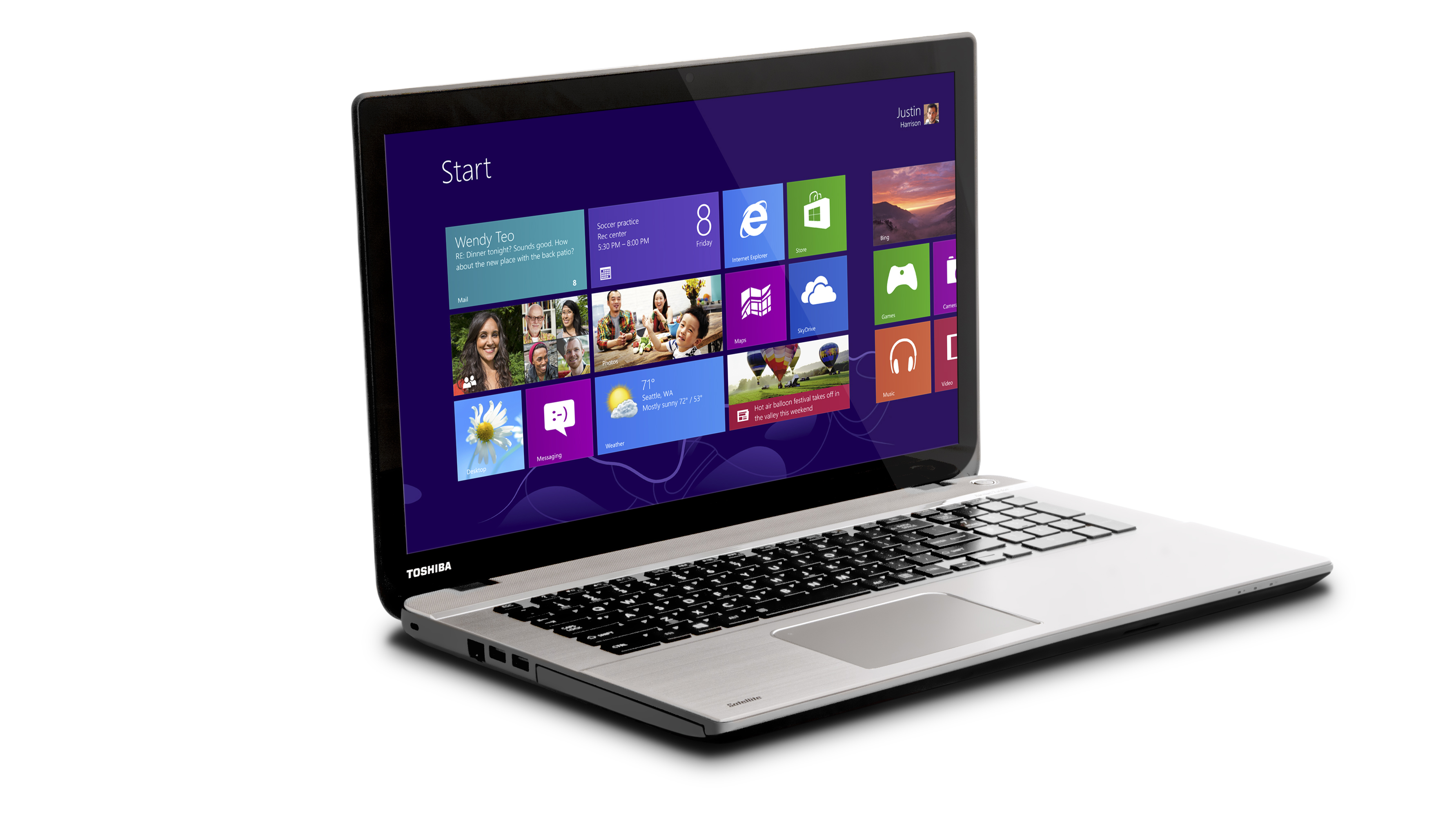Why you can trust TechRadar
Benchmarks
3DMark Fire Strike: 1372
Cinebench: 5.9
Battery: 1hr 17m high performance; 1hr 33mins power saver
The processor and graphics card are both decent, but neither component first captured our interest - instead, it's the screen that steals the show.
It's not a touchscreen, but the 17-inch, 1,920 x 1,080 TFT panel impressed in virtually every department.
Our X-Rite i1Display Pro colorimeter returned stellar quality results: the brightness level of 332cd/m2 means that this screen virtually seared our retinas at the top level, and the average Delta E of 2.5 is excellent. It means that colours are both vivid and extremely accurate.
The contrast ratio of 613:1 is reasonable, too - the only black mark here is the measured black level of 0.54cd/m2. It's a little higher than the best screens, and it means that black tones aren't as inky as they could be - and also that it's difficult to distinguish between the deepest shades. Still, it's a minor criticism.

The Toshiba further enhances its media abilities with a good set of speakers. The four units are provided by long-time Toshiba collaborator harmon/kardon, and there's more than enough volume to fill a room - we've rarely heard laptop speakers this loud.
The treble and mid-range sounds are both high-quality and well balanced, although we do wish that the bass was a little more substantial.
Sign up to the TechRadar Pro newsletter to get all the top news, opinion, features and guidance your business needs to succeed!
The Core i7-4700MQ is one of Intel's most powerful mobile processors, and it didn't disappoint in Cinebench. Its benchmark score of 5.9 is one of the best we've seen: the Core i5 processor inside the HP Spectre XT TouchSmart could only manage 2.25, and the Gigabyte P2742G - which has an Ivy Bridge chip - scored 4.7.
Only one laptop has scored more, and that's the games-focussed Schenker XMG P703 - it used a more powerful Haswell chip to score a mighty 7.21.

The Nvidia graphics core is a mid-range part, but it's still a better option than the integrated graphics on offer in rival machines. In 3DMark's Fire Strike benchmark the Toshiba scored 1,372 - around twice the score of the Samsung Series 7 Chronos, and far ahead of the HP's 399 result.
It's a little less powerful than the Gigabyte, though, which deploys an Nvidia GeForce GTX 660M core for a score of 1,525.
We like the 2TB of storage included in the Toshiba, but it's not exactly quick: the two disks used in this machine had average sequential read and write speeds of 93MB/sec and 78MB/sec - below the pace we've seen from desktop hard disks and some mobile parts.

There's one particular sting in the tail, though, and that's battery life.
The 4,200mAh unit included with the Toshiba isn't what you'd call capacious, which was demonstrated in our tests: in High Performance mode the Satellite P70 lasted for 1hr 17mins, and this figure rose by just 16 minutes when we enabled Power Saving mode.
This isn't a laptop you'd want to take away from the mains for long - the Samsung and HP machines, while less powerful, have much better longevity.
Mike has worked as a technology journalist for more than a decade and has written for most of the UK’s big technology titles alongside numerous global outlets. He loves PCs, laptops and any new hardware, and covers everything from the latest business trends to high-end gaming gear.
